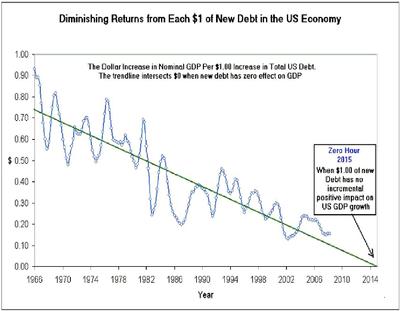Wed 30 Jun 2010
Is It Unethical to Invest in Government Bonds?
Posted by Jason G. under Discussion , MacroNo Comments
Someone recently shared this quote from Murray Rothbard’s Ethics of Liberty (ch. 24):
Many libertarians assert that the government is morally bound to pay its debts, and that therefore default or repudiation must be avoided. The problem here is that these libertarians are analogizing from the perfectly proper thesis that private persons or institutions should keep their contracts and pay their debts. But government has no money of its own, and payment of its debt means that the taxpayers are further coerced into paying bondholders. Such coercion can never be licit from the libertarian point of view. For not only does increased taxation mean increased coercion and aggression against private property, but the seemingly innocent bondholder appears in a very different light when we consider that the purchase of a government bond is simply making an investment in the future loot from the robbery of taxation. As an eager investor in future robbery, then, the bondholder appears in a very different moral light from what is usually assumed.
While I don’t completely agree with this quote, it is certainly thought provoking. I think revenue bonds suffer less from this ethical dilemma than general obligation bonds…
Your thoughts?
